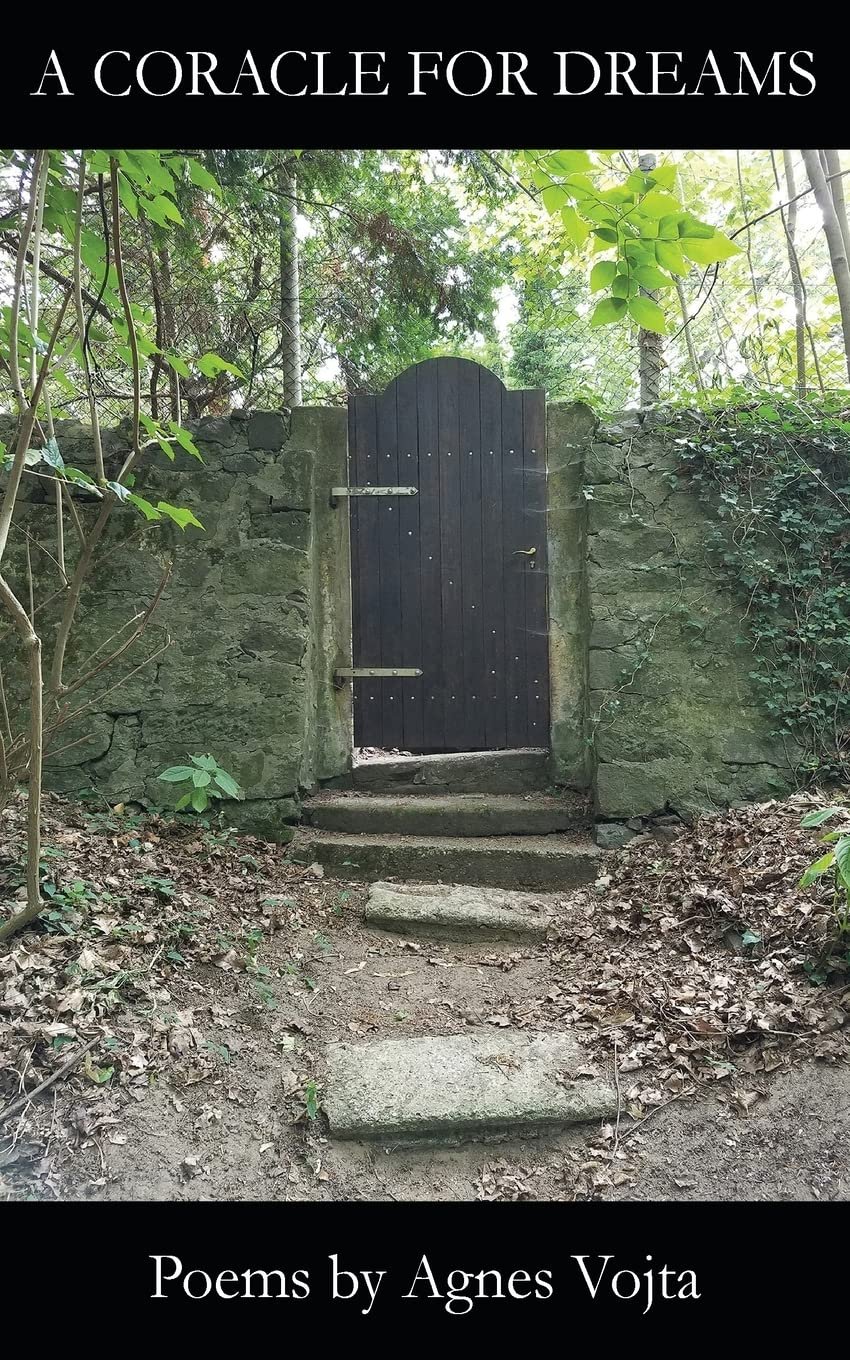Agnes Vojta
What people are saying
To read Agnes Vojta’s A Coracle of Dreams is to sigh at each poem’s end with satisfaction, awe, and poignancy that this is poetry. As she traces the decline and passing of her father, she turns to nature for solace and wisdom and brings her reader along with her, our guide who points out the most exquisite, revelatory details, making every closely observed stanza, line, and word palpable, a place where we can return to the ineffable. Here we flow with the spirit of the river and “every place is the right place / every time is the right time,” not because of the order humans impose on the world but because of the ecosystem whose physics she tenderly sings into being. We find ourselves on a lakeshore, on a trail, family in rooms, houses, and gardens. She wants us to share in the beauty, in all the pleasures of the senses. When she breathes in the lovely scent of the witch hazel, she wishes you her early spring joy—and you can’t help but accept the gift.— Aliki Barnstone, Poet Laureate of Missouri, 2016-2019, Author of Dwelling, Translator of Liana Sakelliou’s Portrait Before Dark
Agnes Vojta’s poems in Coracle for Dreams are written with intelligent and richly crafted images. They draw us into a keen sense of Place and its relationship to those seeking permanence— the “dream driven”, who journey between homes forsaken and homes gained in new lands. The speakers learn through the naming of flora and fauna that “… naming is knowing”, and “Familiarity breeds love” of newfound landscapes. Yet nature is not reflexively centered, but rather teaches us “how to grow / despite gaping wounds.” Narrative and memory are not without poetic engagement with death and the end of what we thought would endure. Observing a landscape where woods were drowned to build a dam, “We float between cedar ghosts”, sojourners whose eyes engage the “soft silence” of the scene. Though all is not loss, for these poems are love songs to wild regions, land, and kinship, even when it means people will pass away, — those so tightly held in love, often met with anticipatory grief, that “liminal space / between hope / and letting go.” Throughout, the speaker’s words become ours, often reaching toward the ineffable through memorable images that summon us like those afloat in a coracle, the ones we love gathered into what hands have built. Vojta’s poems are a worthy comparison to the best work of Wendell Berry. Beauty and resilience endure through losses. This benevolent and insightful collection comes with my highest recognition.
— Jeffrey Alfier, Co-editor, Blue Horse Press and San Pedro River Review
With this earthy and honest collection, Agnes Vojta shows us what it is to be an immigrant, removed from family by miles but not heart. She shares the familiar and walks us with her loved ones through small moments into grand revelations. "I was a stranger. Did not know/ the names of tree or bird./ Naming is knowing." Each poem is a naming of moments and observations, of memories and fears. Vojta's graceful writing holds us with delicate stark patience through her discoveries and losses into a collection we can return to with grateful reverence. "She whispers words/ that are missing/ in the dictionary,/ roars them in her rapids."
- Jonie McIntire, Lucas County Ohio Poet Laureate (2022-2024); poetry editor Of Rust And Glass; author of Semidomesticated (winner of Red Flag Poetry's 2020 chapbook contest.)
Agnes Vojta’s poetry is rife with images of nature and the compassion for all living, sentient beings, even the mosquitos that the bats need to eat. It is also a book about loss, as she grapples with her aging parents who live in a continent away, from the home in Germany she left to live in the United States. She compares herself to the starlings that “thrive in their new land,” and she visits Dresden, where she finds the maples are the only thing that hasn’t changed, as she certainly has in her new home, with a core of being that hasn’t. Her book is like the coracle from the title poem, in which her poetry is “large enough to hold a dream/ a dream just light/enough not to sink it.” A moving and profound read, Vojta carries us in her coracle to an intimate world, and we are grateful for it.
- Kika Dorsey, author of Occupied: Vienna is a Broken Man and Daughter of Hunger
